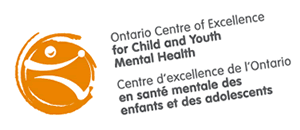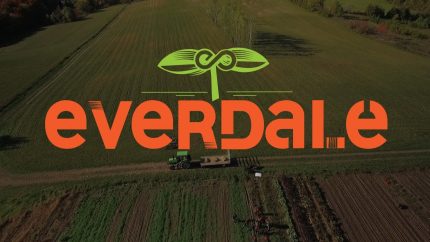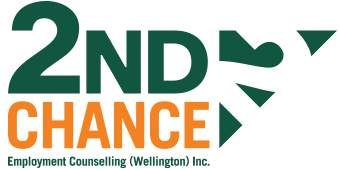In celebration of TNC’s 10th anniversary on May 20th, 2020, we are creating a series of posts that reflect our practice and mission.

 Leading up to TNC’s 10th anniversary our team has been reflecting about projects that stood out to us. As we met with our faces floating virtually, a few themes began to emerge of common areas of work. These themes resonated because while working on these projects we’ve made some great friendships, gotten to know and better understand the people our clients serve, and built our clients’ capacity to do good work. We feel truly fortunate to be a part of these inspiring change efforts!
Leading up to TNC’s 10th anniversary our team has been reflecting about projects that stood out to us. As we met with our faces floating virtually, a few themes began to emerge of common areas of work. These themes resonated because while working on these projects we’ve made some great friendships, gotten to know and better understand the people our clients serve, and built our clients’ capacity to do good work. We feel truly fortunate to be a part of these inspiring change efforts!
One area that stood out was our work with co-researchers, who are members of the community with lived experience that we’ve hired to help us conduct evaluations, and our research exploring related topics of leadership and engagement. TNC currently involves 8 co-researchers as active members of our team. This area of our work is important to us. By involving those with lived experience in research it puts into practice our commitment to listen deeply to the voices of those impacted most by our work. It has been our experience that projects with co-researchers are also more likely to lead to actions and positive impacts in our communities. Another important reason to involve members of the community in evaluation is to increase their capacity as professionals, so they can explore areas of future work and gain transferable skills. Co-researchers might also broaden their understanding of the service systems they are affected by so they can better navigate and gain access to essential services. We’ve learned that involving members of the community in evaluation can be an intervention in itself!
Involving co-researchers makes programs and services more impactful!
Our evaluation of Boys and Girls Clubs of Canada’s national Lead UP program (2017-2021) really exemplifies the benefits of involving co-researchers. In the first year of this project, our team explored youth leadership programming at six pilot Clubs to inform a youth leadership program toolkit and scale the program nationally. As part of this process, TNC recruited 4 youth co-researchers at each Club (24 total) to collect data by running focus groups and Photovoice projects with their peers at the Club. We heard from the youth and staff involved that youth feedback about the program was more authentic because their peers were involved in gathering stories about the program. Participants felt more at ease about discussing their experiences in the program. Youth also shared that by taking part in co-researcher training sessions and gaining experience in facilitation they were able to learn invaluable life skills. This unique co-researcher approach was possible because BGCC, as a leader in child and youth programming in Canada, was eager to try new and innovative solutions to meet the needs of the young people they serve.
We’ve learned about youth engagement by doing youth engagement!
TNC has worked closely with Big Brothers Big Sisters of Canada for a number of years exploring the impact of the foundational relationships between their mentors and mentees. We value their mission as a national mentoring leader in Canada to foster life-changing relationships between children and adults that spark future success. We are currently working with BBBSC on a demonstration project to explore a new coaching model for youth engagement. As part of this work, TNC is coaching a young member of BBBSC’s National Youth Council (Project Lead) to conduct a comprehensive needs assessment and design a toolkit for Big Brothers Big Sisters agencies to guide them in implementing youth engagement projects locally.
BBBSC is committed to building the capacity of youth with the skills to achieve their personal goals and grow professionally. By involving our team as project “coaches” BBBSC has been able to support the Project Lead’s growth and learning as she conducts a complex national evaluation project for the first time. Through ongoing reflection and learning exercises with the Project Lead, TNC has also learned about youth-led mentorship and training approaches. Through this project BBBSC has gained an edge in distilling the ‘need-to-have’ resources for effective youth engagement. Having a young person lead the project has helped ensure the work stays grounded in a young person’s perspective and will be relevant to youth locally.
Working alongside youth produces stronger evaluation methods and findings!
Locally, we have worked with the SEED, Everdale Farm, Lutherwood Employment Services, 2nd Chance Employment Counselling, and the County of Wellington-Ontario Works to evaluate their Good Food Work Experience. This program provides experiential learning and employment opportunities within the food system to youth in Guelph and Wellington who have faced barriers to employment or education.
Aligned with the values of the program, TNC is committed to providing further employment opportunities to youth. This year, we employed a youth co-researcher who was instrumental in planning our evaluation so that it would be more engaging and accessible for youth. She was also employed at the SEED and provided important feedback to contextualize the evaluation findings. By working alongside her, we have learned more about supporting youth who face barriers to employment, and produced more relevant evaluation tools, and stronger evaluation findings.
Working with co-researchers can build their capacity as professionals and researchers!
For the past two years, TNC has been working in partnership with the Centre of Excellence for Child and Youth Mental Health (“the Centre”) to evaluate youth and family engagement initiatives across Ontario. As leaders in the field of youth and family engagement, the Centre has been an incredible ally in this work and has modeled effective engagement for us as we learn about effective and innovative approaches to meaningful involvement.
As part of this work, TNC hired a team of three youth and two family co-researchers with lived experience in the mental health system to helps us evaluate the project. TNC works closely with this incredible group of talented people by providing evaluation training sessions and involving them in evaluation tasks. During the project, the co-researcher team helped inform project design and planning, facilitated meetings, interviews, and focus groups, and analyzed qualitative data. Their feedback has been invaluable to the project. Fortunately, their involvement has also benefited the co-researchers themselves!
They’ve shared that the experience has helped prepare them for post-secondary education and gave them transferable skills that can be used in other contexts:
“I want to pursue a Masters … so research and evaluation in that respect was super important, so for me it was a really great learning opportunity in terms of being able to learn valuable skills in research and evaluation that I didn’t know before…” – Co-Researcher
“By providing training and coaching, co-researchers had the opportunity to build the skills necessary to perform the outlined tasks in a more meaningful and effective way. Many of these trainings incorporated transferable skills, like facilitation and interviewing techniques or analysis training, that could be used in other areas.” – Co-Researcher
The team also felt that what they are learning through their involvement on the project has been catered to their unique backgrounds and learning goals:
“I feel like those trainings were necessary a lot of the time, because I don’t come from that research and evaluation background. I really loved how the trainings were tailored to our own understanding… the concepts around the training and lessons were explained in language that was accessible for people who weren’t coming from research and evaluation background… they were really important” – Co-Researcher
To make sure our co-researchers feel heard and that we are embedding the principles of engagement through our work, two of our co-researchers were recently invited to lead reflection sessions to explore successes and challenges in our work together over the past year. Key learnings from these sessions are summarized in part 2 of this blog.









